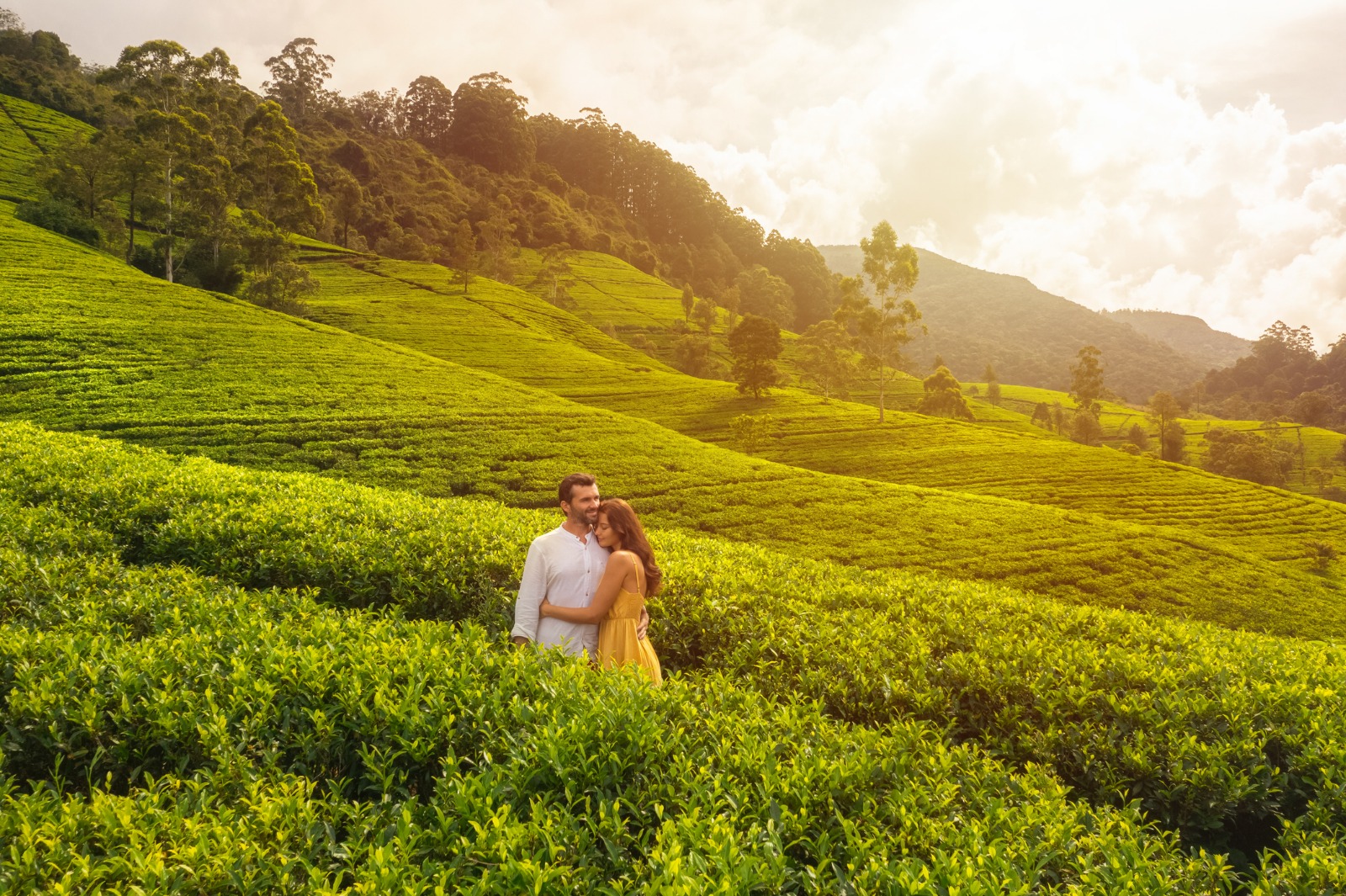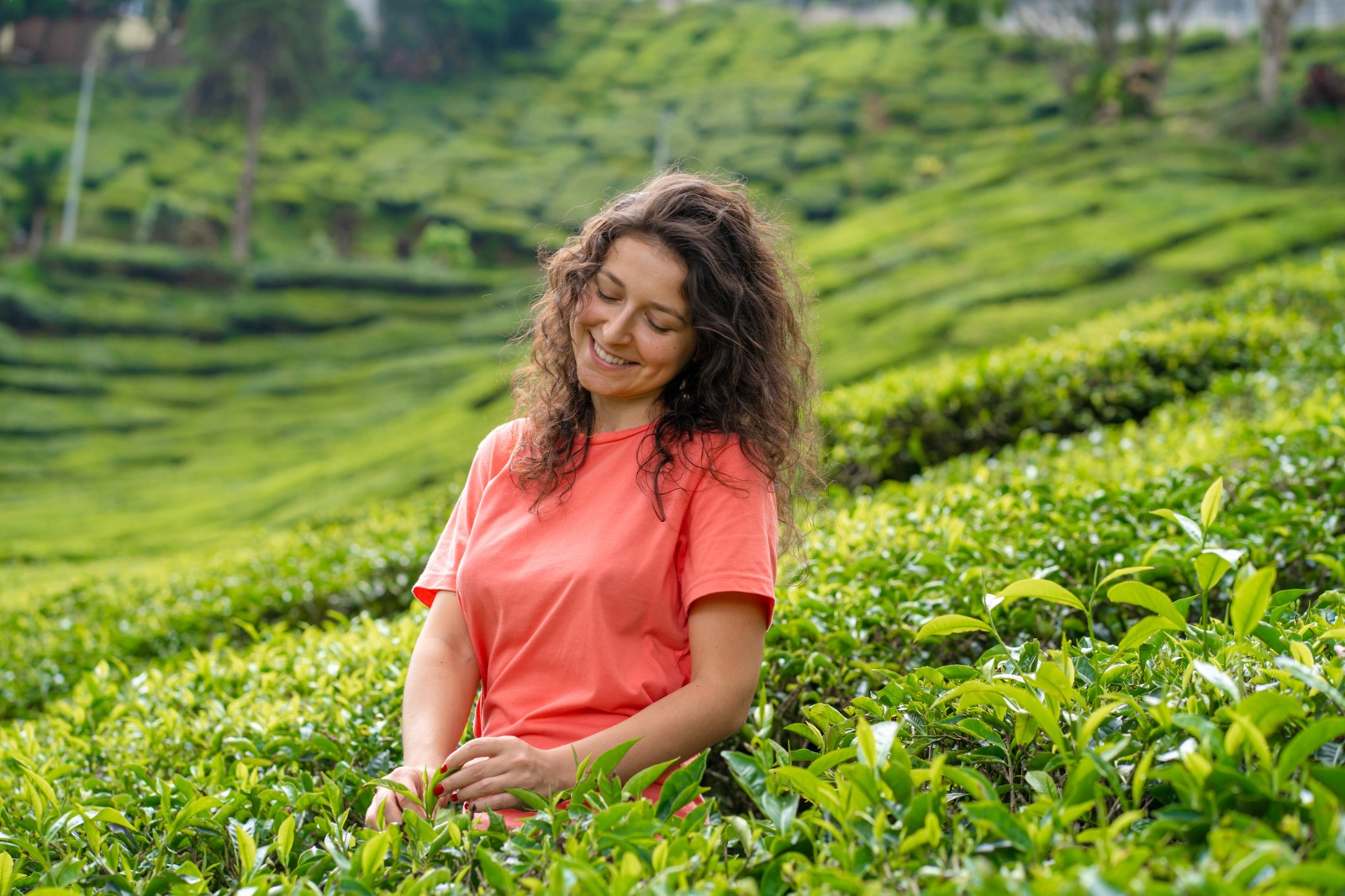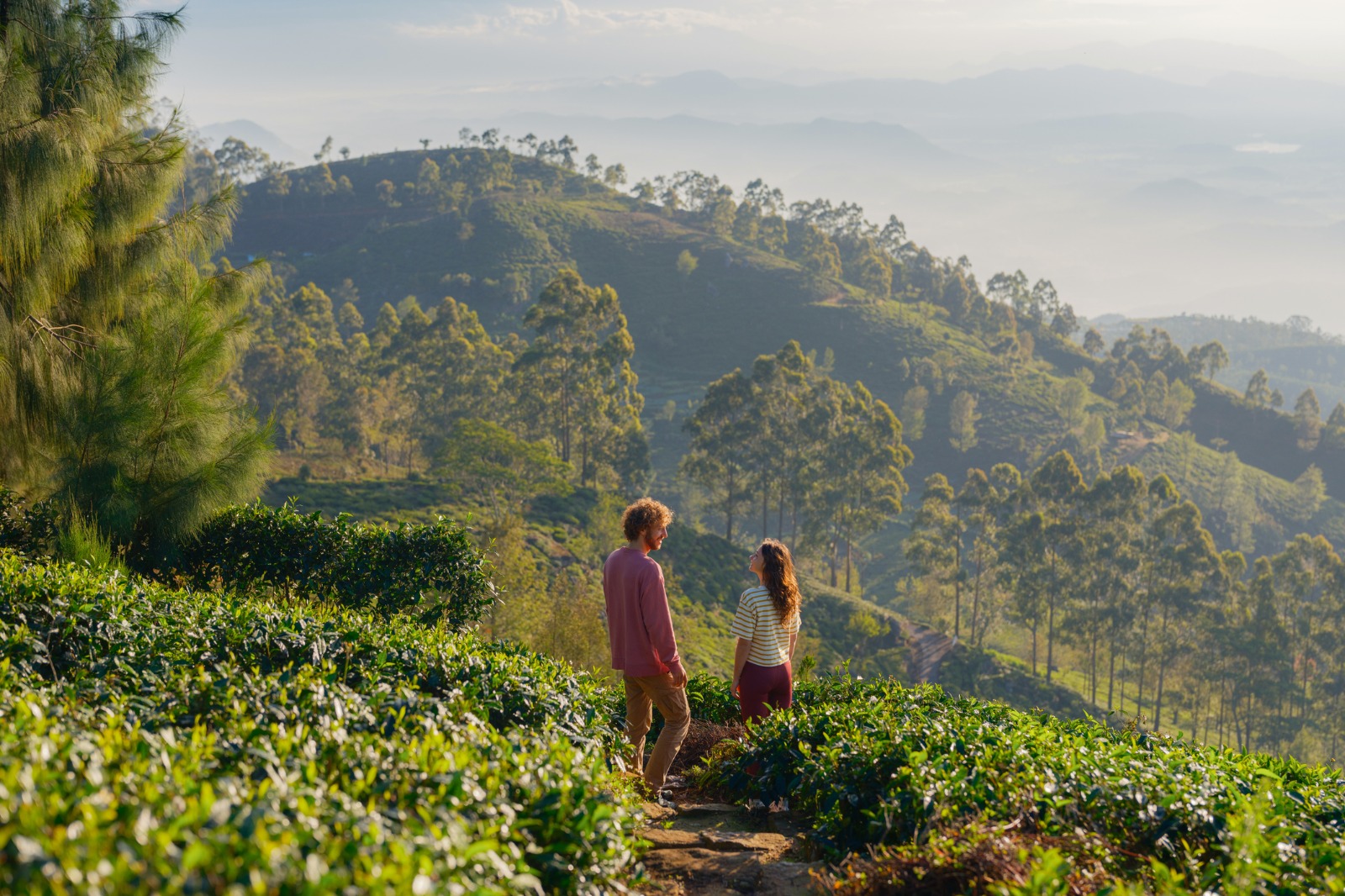Ceylon Tea: The Golden Elixir That Defines Sri Lanka

.
Sri Lanka’s Ceylon tea stands as one of the world’s most celebrated beverages, carrying with it a legacy of excellence that spans over 150 years. This golden elixir has not only shaped the island’s landscape and economy but has also become a powerful magnet drawing tea enthusiasts and curious travelers from every corner of the globe.
The Uniqueness of Ceylon Tea
Exceptional Terroir: Ceylon tea’s distinctive character comes from Sri Lanka’s unique geographical advantages. The island’s high-altitude tea gardens, ranging from 600 to 2,500 meters above sea level, combined with the perfect balance of rainfall, sunshine, and cool temperatures, create ideal conditions that cannot be replicated anywhere else in the world.
Seven Distinct Growing Regions: Each of Sri Lanka’s tea-growing regions – Nuwara Eliya, Dimbula, Uva, Kandy, Ruhuna, Sabaragamuwa, and Uda Pussellawa – produces tea with its own unique flavor profile, aroma, and character. This diversity within a single island is unmatched globally.
Pure and Natural: Ceylon tea is cultivated without artificial additives or flavorings, maintaining its pure, natural taste. The traditional methods of cultivation and processing have been preserved, ensuring that each cup delivers the authentic essence of the tea leaf.
Distinctive Flavor Profiles: From the bright, citrusy notes of high-grown Nuwara Eliya tea to the bold, full-bodied character of Uva tea, Ceylon tea offers an incredible range of flavors that cater to every palate preference.
Quality Assurance: The Ceylon Tea Board’s strict quality standards and the iconic Lion Logo certification guarantee that every package of Ceylon tea meets the highest international standards.
How Ceylon Tea Attracts Tourists to Sri Lanka
Tea Plantation Tourism: The rolling emerald hills covered in tea bushes create some of the world’s most photogenic landscapes. These plantations have become major tourist attractions, offering visitors the chance to walk through the gardens, learn about tea cultivation, and enjoy breathtaking panoramic views.
Factory Tours and Tea Tasting: Visitors can witness the fascinating process of tea production, from leaf to cup, in colonial-era factories that still operate using traditional methods. Professional tea tasting sessions allow tourists to develop their palate and understand the nuances of different tea grades.
Cultural Heritage Experiences: The tea industry’s colonial history is preserved in charming plantation bungalows, vintage machinery, and the stories of generations of tea workers. This living heritage provides rich cultural experiences for history enthusiasts.
Scenic Train Journeys: The famous hill country train rides through tea plantations offer some of the world’s most spectacular railway journeys. The slow-paced journey allows travelers to soak in the beauty of endless tea gardens stretching to the horizon.
Tea Tourism Circuits: Specialized tea tourism packages combine plantation visits with stays in converted tea estate bungalows, offering luxury accommodations with stunning views and authentic tea country experiences.
Economic and Cultural Impact
Ceylon tea tourism supports thousands of local families, from tea pluckers and factory workers to guides and hospitality staff. This sustainable tourism model preserves traditional skills while providing economic opportunities for rural communities.
Global Recognition
Ceylon tea’s reputation for quality has made Sri Lanka the world’s fourth-largest tea producer and a leading exporter of premium tea. This global recognition draws tea connoisseurs and industry professionals to experience the source of their favorite beverage firsthand.
Seasonal Variations
Different harvesting seasons produce teas with varying characteristics, encouraging repeat visits from tea enthusiasts eager to experience seasonal flavors and participate in harvest activities.
Ceylon tea has transformed from a colonial plantation crop into Sri Lanka’s most powerful tourism ambassador. Every cup of Ceylon tea consumed worldwide carries with it an invitation to visit the island paradise where it was born.
The combination of exceptional quality, stunning landscapes, rich history, and authentic experiences makes Ceylon tea tourism a unique proposition that no other tea-producing country can match. For travelers, it offers the rare opportunity to taste paradise while walking through the very gardens where their favorite tea grows.


.
.

.


